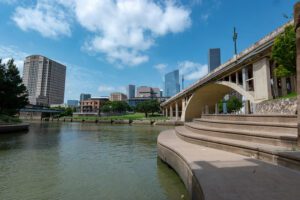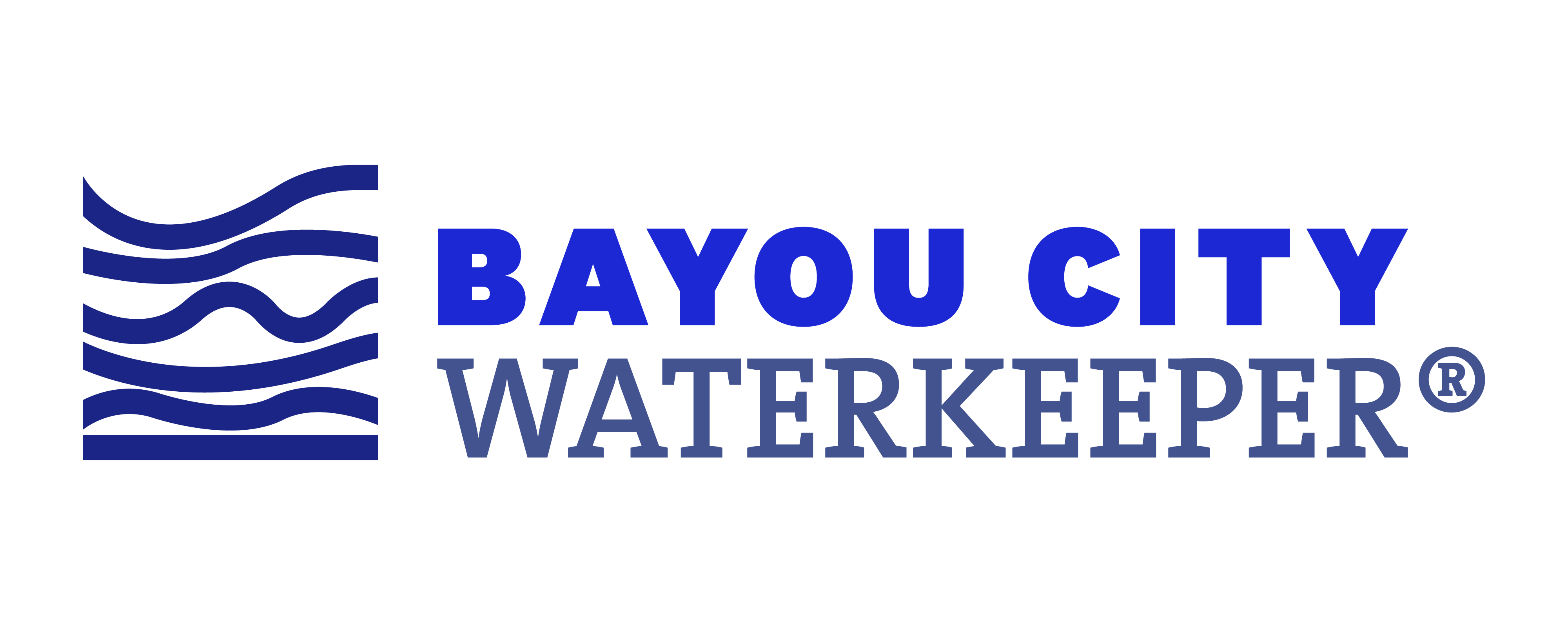Yesterday, the U.S. Environmental Protection Agency released a memorandum to address changes to its enforcement program while the COVID-19 crisis unfolds. In deciding not to enforce most violations of federal environmental law, the EPA gives polluters a pass during this public health crisis. The EPA’s policy of non-enforcement will potentially worsen existing public health problems from increased air emissions and discharges of untreated sewage to our waterways.
Continue reading below to learn more about the local implications of this policy of non-enforcement.

What does this policy mean for our watershed?
Our watershed already suffers from a culture of environmental noncompliance, which unfortunately has left us with polluted bayous and streams. Our legal team’s analysis last year found that at least 144 entities in Harris County violated the Clean Water Act in at least six of the 12 quarters from January 2016 to 2019. A jaw-dropping 10 facilities had Clean Water Act violations in every quarter over that same time period. Four of those ten facilities have not faced an enforcement action, formal or informal, for their legal violations. While the COVID-19 crisis unfolds, we can expect these numbers to worsen.
What does this mean for our drinking water?
The EPA makes clear that public water systems have a “heightened responsibility to protect public health” by maintaining safe drinking water. The EPA urges public water systems to alert the EPA’s regional office and state agencies if any issues arise that prevent the normal delivery of safe drinking water. The CDC has reported that the coronavirus responsible for COVID-19 has not been detected in drinking water.
What effect does this policy have on the City of Houston’s wastewater consent decree?
Last year, Houston’s City Council voted to approve a $2 billion consent decree to address problems with Houston’s wastewater treatment systems, which have resulted in hundreds, if not thousands, of discharges of untreated sewage into our bayous each year. For four months now, the U.S. Department of Justice has been reviewing substantial public comments identifying shortcomings in the proposed consent decree, including failures to address historic inequities or incorporate green infrastructure to address violations tied to our city’s predictably heavy rainfall.
We anticipate that this review will be delayed further by the COVID-19 crisis. Once the consent decree is final, this policy may give the EPA some discretion to waive future penalties under the consent decree.
Does the policy apply to criminal violations of environmental laws?
No, the policy does not apply to criminal violations of federal environmental laws, including the Clean Water Act. This means if a polluter shows “intentional disregard for the law,” they should not escape criminal penalties, even under the EPA’s new policy of non-enforcement. Under the Trump Administration, however, criminal enforcement has already dramatically dropped. As the Administration has shifted more enforcement responsibility to the states, federal criminal fines and restitution fell to $86 million in 2018, from approximately $200 million in 2016.
Does this policy limit Harris County Attorney’s Office and Harris County’s District Attorney from enforcing environmental violations?
No. Without a similar policy yet in place at the state level, our local environmental regulators and prosecutors may continue to pursue violations of the Texas Water Code and other state environmental laws with vigor. While we commend and support local efforts to enforce environmental violations, legal capacity to take on complex environmental problems is severely limited. Even before COVID-19, organizations like Bayou City Waterkeeper worked tirelessly to fill gaps at the local level, meaning that now more than ever, enforcement by the EPA is imperative to protecting our waterways and public health.
Does this policy limit organizations like Bayou City Waterkeeper from filing citizen suits?
No. The policy only applies to the EPA’s enforcement power and does not place limits on citizen suit provisions under federal environmental laws like the Clean Water Act. Traditionally, citizen suits are intended to supplement, not replace, federal enforcement of environmental law. The EPA’s policy of non-enforcement disrupts that long tradition and effectively shifts responsibility for enforcement to non-profit organizations like Bayou City Waterkeeper. More now than ever, Bayou City Waterkeeper remains vigilant and committed to stopping pollution affecting our local waterways.
***
Once this crisis is over, the EPA’s intentional policy of under-enforcement should also end. In the meantime, the work that must be done by local governments and organizations like Bayou City Waterkeeper is immense. We thank you for your continued support during this difficult time.
